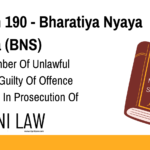Bengaluru: The Karnataka High Court ruled that authorities should not compel an accused to obtain case-related documents through the Right to Information (RTI) Act if they have filed an application under Section 91 of the Criminal Procedure Code (CrPC).
Justice M. Nagaprasanna made this observation while allowing a petition by Dr. Shivamurthy Muruga Sharanaru, the pontiff of Murugha Mutt in Chitradurga. He is accused of sexually abusing two minor girls staying in hostels run by the Mutt.
Case Background On Ruling
The petitioner had challenged a trial court’s order that rejected his request to summon certain documents related to the investigation. The prosecution had argued that the accused could obtain them through an RTI application instead.
High Court Ruling
The High Court ruled that this reasoning was flawed, stating that Section 91 of the CrPC does not require an accused to rely on the RTI Act for securing relevant documents. The court found the trial court’s rejection of the petition “illegal” and emphasized that the prosecution must provide the requested documents at the appropriate stage of the trial.
More About The RTI Act
The Right to Information (RTI) Act empowers citizens to access government records. To file an RTI, write an application addressing the Public Information Officer (PIO) of the concerned department. Mention the required information clearly.
Pay the prescribed fee and submit it in person, by post, or online (if available). The authority must respond within 30 days. Citizens can seek details about government policies, expenditures, and decisions. If denied information, they can appeal. Some sensitive data, like national security details, remain exempt.
RTI ensures transparency and accountability, helping individuals hold authorities responsible for their actions.
Conclusion
This ruling ensures that an accused can access necessary documents directly through legal proceedings without being redirected to RTI applications.











